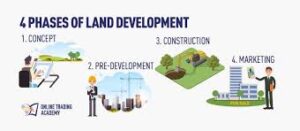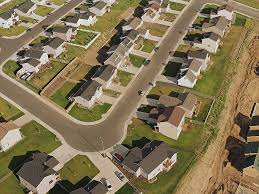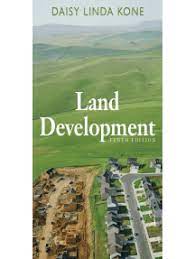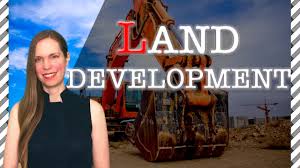



LAND DEVELOPMENT
Before you invest in a piece of land, look carefully at the total expenditure you will be incurring and assess your financial requirements. These go beyond the simple purchase price of the land: there will be other costs like transfer fees, legal costs and many other items that will inflate the capital sum needed.
Purchasing the Land:
The first item of mayor expense is the land itself. Before making an “offer to purchase” investigate the prices obtained in recent sales in the same area and compare them with the amounts that sellers were originally asking. Do not base your assessment of the land on the official municipal valuation, as this is used only for purposes of estimating rates and taxes and has no bearing on the actual market value.
RURAL DEVELOPMENT
The majority of people in South Africa are located in the rural areas, and the majority of them being women and children. Women, especially those in the rural areas, are marginalized in the development process regardless of the new focus on women in development literature. Most women are not involved in the decision-making process, and the few that are involved only appear at the implementation stage where there is need for manpower. Development projects which are geared towards poverty alleviation are planned by men for men and women are very seldom in the planning stage. Women are therefore objects and not subjects of the development process. Most policy makers are not gender sensitive and women often find themselves left behind.
Rural Development projects also seem to be devoid of the attention to local needs and local preferences are therefore sometimes irrelevant. Many rural development projects do not achieve their intended objectives and others even produce unwanted results and perpetuate the existing socio-economic bottlenecks experienced in the rural areas. It is believed that rural development projects will not reach their intended objectives if women continue to be marginalized.
PROPERTY DEVELOPMENT
What often intimidates the first-time owner/builder is the very thought of taking the first step and taking sole responsibility for all major projects. But you will not be alone: you will need to assemble a team and work closely with it over a period of time. This is the real challenge. As the head of that team you will have to organize, co-ordinate, control, motivate and, ultimately, success will depend on your personal leadership qualities. Whatever activities you get involved with, some of the basic guidelines that apply are:-
- Prepare or ask a “professional consultant” to prepare a proper business plan that will also include a strong financial plan.
- Be realistic in terms of what you can afford.
- Plan all your projects in as much detail as possible.
- Do not begin construction work until the land has been registered in your name and the building plans have been approved.
- Undertake a thorough cost analysis, or have a computer costing prepared before you start ordering material and building.
- Supervise the construction work closely, or have an experienced person (i.e. project manager) do this on your behalf.
- Be careful not to overpay for work done, or to pay for work that has not been started.
Construction Schedule
A detailed schedule will help you to plan – indeed, it is essential to – the administration and execution of the planned projects. The more thoroughly and accurately the program is drawn up, the better the chance of minimizing delays. Among the specific advantages of the schedule are that it:-
- Makes you think the job through in a logical manner;
- Helps you schedule the ordering and delivering of materials;
- Helps you co-ordinate labor, subcontractors, plant hire etc.
Order of Work
Begin by listing all the major stages in the entire program, as follows:-
- Procurement of the land.
- Obtaining sketch plans.
- Obtaining detailed drawings & approval.
- Making finance arrangements.
- Construction.
- Fencing, garden etc.
The construction phase will thereafter have to be broken up into various segments, in enough detail to enable you to co-ordinate the work effectively. The precise sequence will differ slightly from project to project according to individual needs and circumstances. Consider having the schedule drawn up with the aid of a computer, using either the Critical Path Method (CPM) or the Program Evaluation and Review Technique (PERT). These programs will calculate the “critical path” and identify the critical activities on this path.
REMODELING & RENOVATION
Remodeling and renovation of old homes could be another option but can be expensive and time consuming, but with some perseverance and patience it can be done. If you interested in following this route keep the following in mind:-
- Dream. – Dream simple, recognize your needs and estimate the simplest solution.
- Research – Go to the library/ local bookshop and look at magazines appropriate to your needs.
- Hire an Architect.
- Knew your strengths – and your limitations.
- Don’t delay decisions.
- Don’t change your mind (too much).
- Think “restore” not “redo“
STUDENT ACCOMMODATION
There is now an expanding market for private, comfortable off-campus student residences. These offer state-of-the-art facilities such as WIFI, Internet access, laundry, gym and entertainment lounge. Thousands of students registered at higher education institutions search for such accommodation to reside for the duration of their studies but can’t find them. The demand for student accommodation with the right facilities in the right areas still outstrip supply.
Key Factors
Before investing in a student housing property certain key factors should be taken into consideration. It is very important to properly evaluate students’ day-to-day essential requirements. Key factors to consider are:-
- Location – Students prefer accommodation that are not too far away from campus.
- Accessibility – Most students do not own cars and rely on public transport to get around. The property where they reside, therefore, needs to be close to main routes for access to public transport.
- Security – A secure property is of utmost importance so that students can be assured of a safe environment.
- Maintenance – Regular maintenance is vital and it is therefore better to have a full-time caretaker on site to handle any minor issues.
- Other Features – Going the extra mile to ensure tenants are taken good care of is critical as this goes a long way towards ensuring that good tenants renew their lease.
If you are going to need funding for your project it is always better to obtain the services from a “professional business plan consultant” to ensure that your chances in getting finance are much better.
NEED HELP IN ANY AREA – CALL 084 583 3143 or email: money@global.co.za










